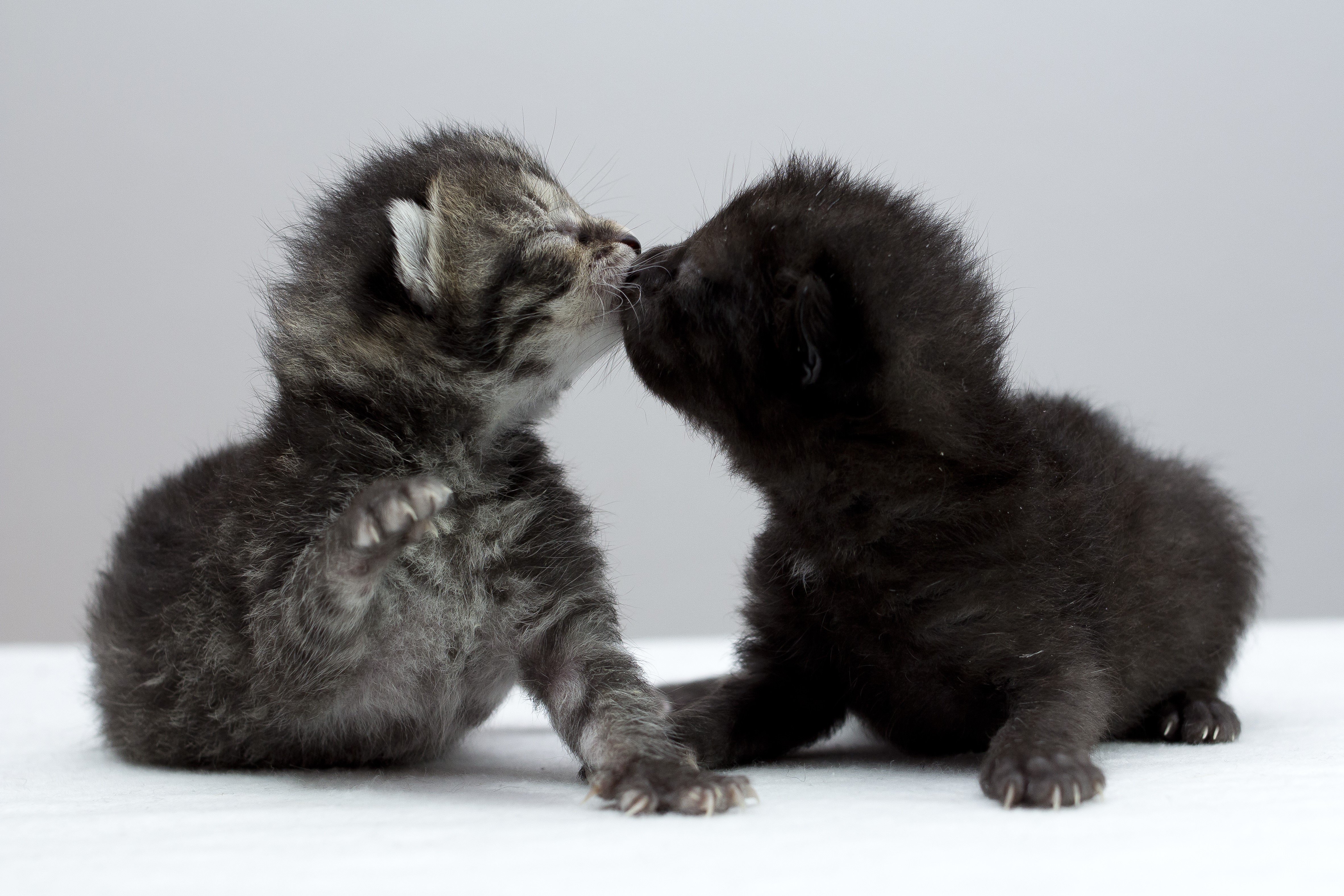
Fostering Kittens from Warrington Animal Welfare
Foster carers are an invaluable part of the work that we do and vital members of the Warrington Aanimal Welfare family.
We regularly need new people to take on this role. It simply isn't possible for us to accommodate all of the vulnerable animals who need care and attention.
Our mother cats and kittens need warmth and attention in those first few important weeks. Or, like us, you may love your older cats and would like to provide a permanent foster home for them. If you do, the medical bills will be funded by WAW, although we are always grateful for contributions in this area of our work.
Our foster carers often save the day and make a friend for life in the process. You may be asked to foster for the short term or for a longer period of time, according to the animal's needs and your circumstances.
Un-neutered female cats come into season in January and February quickly attracting the attention of un-neutered male cats and hence breeding begins.
Seasonal breeders cats typically give birth to two litters a year, in the spring and again later in the Summer. Pregnant for 9 weeks cats give birth to litters of between 2 and 6 kittens (occasionally as many as 7, 8 or even 9 kittens!) Mother cats usually come back into season again when their kittens are 6 weeks old and kittens can breed from 6 months old. Understandably there is a huge cat over-population problem!
During kitten season we receive calls often daily requesting that we rescue mother cats with their kittens or orphaned kittens that have been discovered in gardens, under sheds, in derelict cars, on industrial sites, in empty buildings, behind shops and on demolition sites. This is on top of the regular calls received regarding stray cats, unwanted pet cats and abandoned pet cats. Warrington Animal Welfare also work with feral cat colonies neutering and returning or homing adult cats and homing their young litters of kittens which can be tamed.
Each week the rescue receives numerous calls and that is why we need your help to accommodate and care for these needy young families until they can be found permanent new homes.
Fostering a mother cat and her litter of un-weaned kittens or fostering just orphaned kittens really helps the rescue because:
-
You will be able to offer more space than a cage or cattery pen can provide.
-
You can give more time and attention than can be given in one of our rescue centres.
-
The cats and kittens are protected from the risk of catching cat flu or other contagious illnesses that it’s much harder to protect them from when in a rescue centre where sick cats and newly arrived strays and unwanted pets arrive sometimes daily.
-
With orphaned kittens you also act as mum and help to wean and toilet/litter train them
Criteria for Housing a Foster Kitten Family
A quiet spare room in which to keep or base your fostered mum and kittens is essential. If yours is a calm adult home and you do not have other pets you may wish to base your mum and kittens in another room such as the living room. Your own bedroom does not make an ideal room as a lively six week old litter jumping on your bed throughout the night is going to be a problem even though a newborn litter curled up with mum might not!
It is essential to keep your mum and kittens entirely indoors – they must not be allowed to go outdoors. Any room in which they are housed must have a securely closing door - if you have children you may wish to add a bolt on the outside to make doubly sure it won’t be accidentally opened.
Open chimney’s must be sealed to prevent mum cat and kittens from exploring or hiding in them as should any holes in floorboards or skirting boards etc.
Other Pets and fostering kittens
Mother cats have very strong maternal instincts and can be very defensive/ hostile towards other animals so if you have other pets your fostered family must be kept separately from them. For disease control / health reasons your fostered family should be kept separately from other cats.
Your fostered family will not yet be fully vaccinated. Mum will not have had any vaccinations and kittens do not begin vaccinations until 9 weeks old. There are also other contagious viruses and illnesses that it is possible that your fostered family or your own cats could be carrying or incubating.
We also ask that any pets in the foster home are fully vaccinated and neutered.
Spending time with and caring for your fostered kittens
If mum hasn't had her babies when you take her on then she will need a calm loving environment that offers her affection but also allows her space. When the babies do arrive then initially all that will be required of you is to make sure that mum has plenty of food and a clean litter tray as tiny kittens will be curled up with her and require little if any input from you.
These kittens will grow and develop rapidly though so an important part of fostering is handling and socialising them so that they grow up confident and friendly with people. You will need to be able to spend at least a couple of hours a day playing with and giving attention to mum and her kittens – for most people this is the enjoyable part of fostering and is easily accomplished.
If you work full time and are unable to come home in the middle of the day or do not have anyone else who can do so you can still help with fostering but may be better to consider fostering more independent adult cats.
Equipment Required to Foster Kittens
Warrington Animal Welfare will provide litter trays, cat litter, bedding, toys, bowls and food for your fostered kitten family. All that we ask is for you to collect these from us (and any top ups) as we simply do not have the resources to deliver.
Any other equipment you might require you should be able to acquire free or borrow from us. This can be discussed in more detail once you have made contact with the rescue.
Warrington Animal Welfare provides all supplies and veterinary care for fostered cats and kittens. We will provide required veterinary care at one of our account holding vets (you must be willing and able to travel to the vets if required) should either mum or her kittens become unwell during the time you are fostering any of the family.
More detailed and in depth advice on fostering cats and kittens along with ongoing telephone support is available for all accepted fosterers.
If you are seriously interested in fostering cats for Warrington Animal Welfare and are happy to undergo our standard home check, then please contact us via our webform (click here), email info@warringtonanimalwelfare.org.uk or 01925 748638 (please understand we have limited capacity for phone calls, so it will help us if you could send a message and we'll get in touch).

